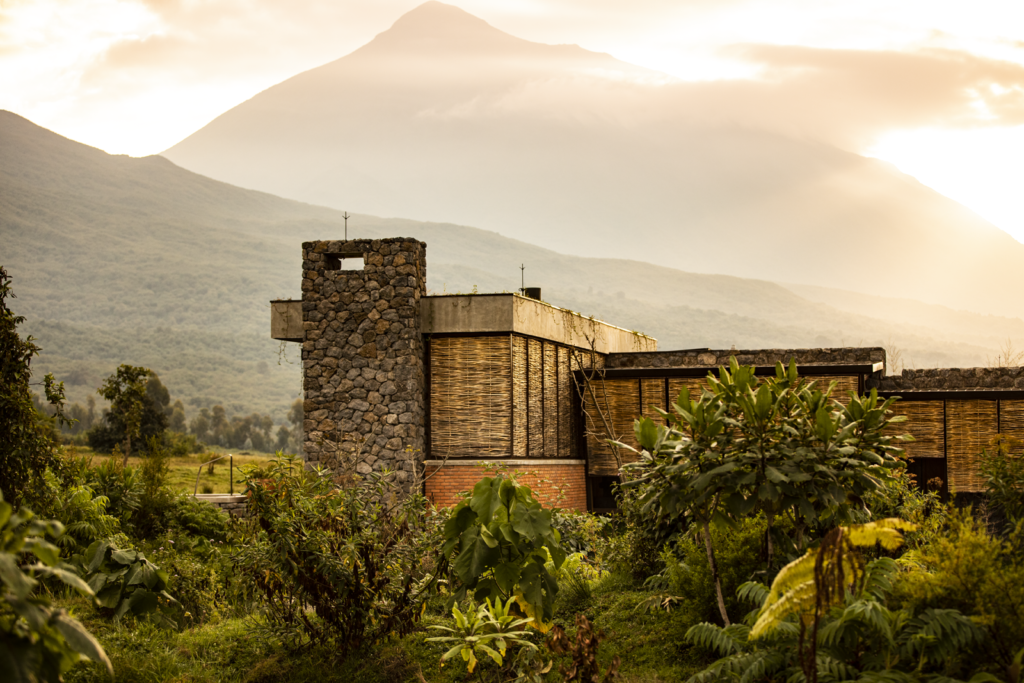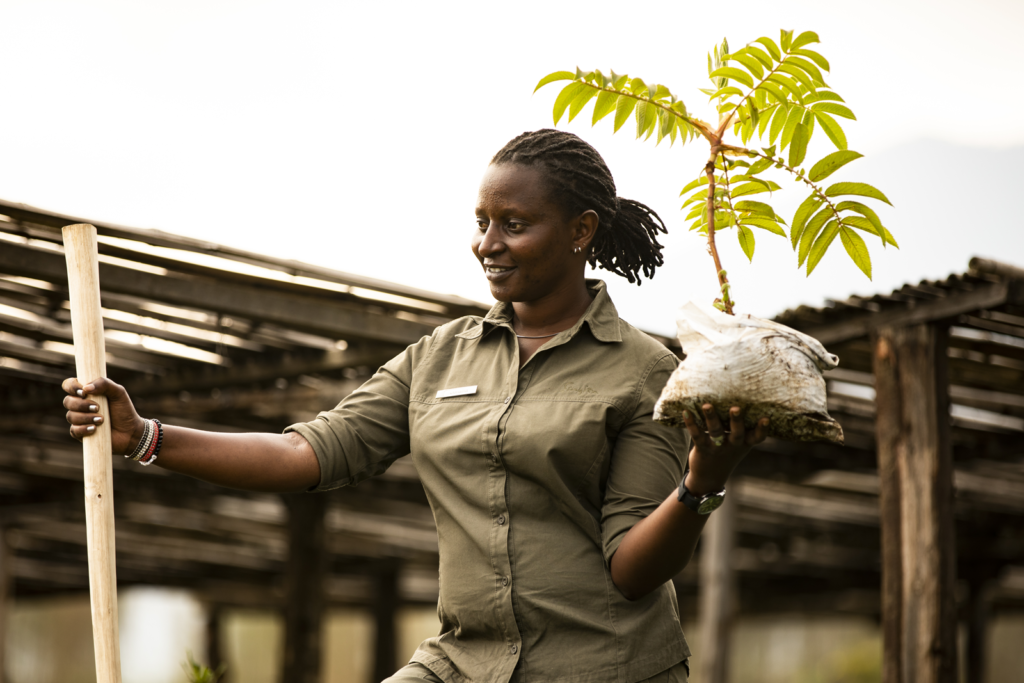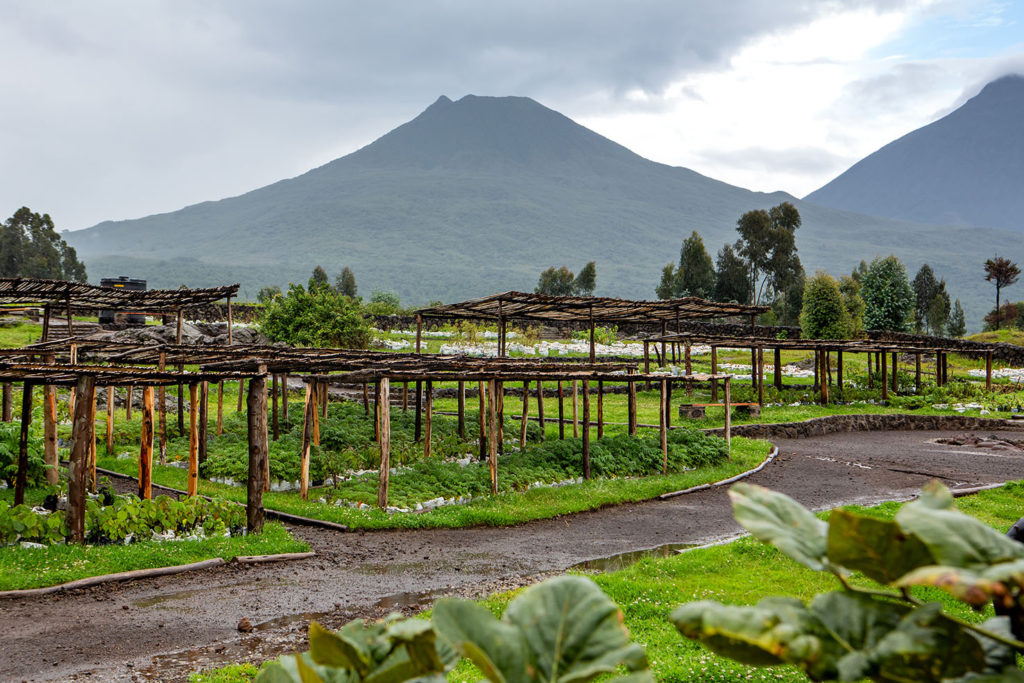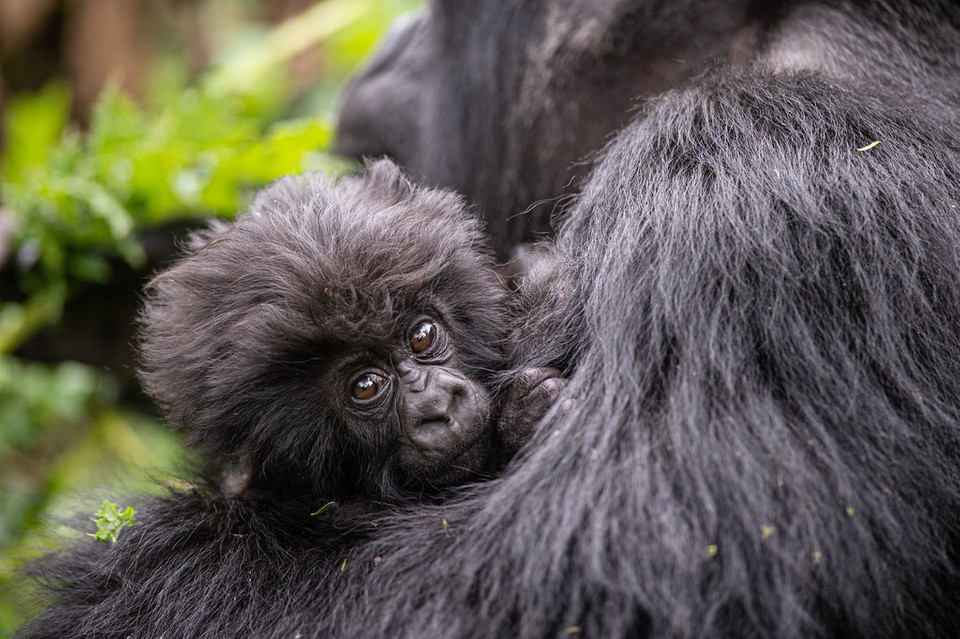Preserving the Fragile Beauty of Rwanda's Indigenous Orchids
With its rich volcanic soil, cool temperatures and mossy cloud forests, the Land of a Thousand Hills is prime habitat for one of the world's most beautiful and fragile flowering plant species: the orchid. One of the conservation projects at Singita Volcanoes National Park on the northern border of Rwanda is dedicated to preserving this eye-catching flora, not just for cataloguing purposes, but as part of the broader reforestation programme designed to expand the size of the Park for the benefit of the endangered mountain gorillas who find sanctuary there.
 Singita Kwitonda Lodge
Singita Kwitonda Lodge
The first objective of this unique initiative is to establish a comprehensive collection of indigenous orchids from the region. Working alongside internationally-renowned orchid specialist, Michael Tibbs, our team in Rwanda is developing a comprehensive database for orchid selection, propagation and replanting artificially propagated orchids that will leave a lasting legacy. The collection will showcase the rare and unique beauty of the orchids for our guests while creating an archive of endemic species and helping to re-establish them in their natural habitat.

An initial search-and-rescue project at the 178-acre site of Singita Volcanoes National Park secured 5,300 specimens of the vibrant purple-pink cynorkis anacamptoides orchids before the construction of the lodge commenced. These rescued plants were potted and stored in a temporary shade house until the completion of Singita Kwitonda Lodge and Kataza House in August 2019 and replanted in the landscape. Within six months of the opening, several hundred orchids could be seen flowering around the lodge. Ansellia africana – the Leopard Orchid – and its many varieties are another focus of the programme, which will ultimately house one of the most comprehensive collections of the genus in the world.

The Singita Kwitonda Lodge Orchid Project is of vital importance to biodiversity in the region, as the historic deforestation of the area for agriculture and charcoal production has led to a dramatic loss of forest habitat, placing numerous endemic species found only in and around the Park at an increased risk of extinction. The work is supported by the Rwanda Development Board (RDB), the Director of National Parks, the Rwandan Agriculture and Livestock Inspection Service (RALIS) and the Director-General of the Ministry of Agriculture. The initiative will also support a student at the University of Kigali’s Musanze Campus, who’ll be appointed and trained to undertake the artificial propagation of orchid material from Rwanda in Musanze’s laboratory facilities, located near to Singita Volcanoes National Park.

The orchid collection forms part of the Akarabo Nursery & Garden; itself an important role-player in Singita's reforestation efforts. Named for the Kinyarwanda word for "Little Flower", our on-site nursery is home to hundreds of thousands of saplings which are grown here before being replanted in and around the property to support the reforestation of the landscape. Guests can enjoy a gentle stroll along the rows of new trees, past the glorious fragrances of flourishing herbs or through the farm-to-fork kitchen garden filled with fresh vegetables before stopping to inhale the glorious fragrance of the orchids.
 The on-site Akarabo Nursery & Garden
The on-site Akarabo Nursery & Garden
 Click the image to see enlarged version
Click the image to see enlarged version
The gorillas – whose survival is no less fragile than that of these delicate flowers – stand to benefit enormously from reforestation projects like the one underway at Singita Volcanoes National Park. The Virunga Massif is the natural habitat of 60% of the world’s 1,000-odd remaining mountain gorillas; a species which has been poached to the brink of extinction and cannot survive in captivity. The restoration of the Park to its original size, which had dwindled due to the pressure of human encroachment and the disruption of a civil war, is essential if we are to increase their range and numbers. It is a plan which epitomises the sense of hope and optimism inherent in Rwanda’s people and is reflected in Singita’s commitment to conservation; a forward-thinking community focused on the upliftment of the whole.

HOW YOU CAN HELP Get involved in the Singita Kwitonda Lodge Orchid Project and make a contribution to the unique floral legacy of the region. Donations raised through the Singita Volcanoes National Park Conservation Fund will support the ongoing research and training of the project team. It also aims to support a five-year student grant (which has an annual cost, including subsistence and accommodation, travel, supplies and materials, of USD 9 500) and the establishment of new shade house facilities at the Akarabo Nursery to house the collection.